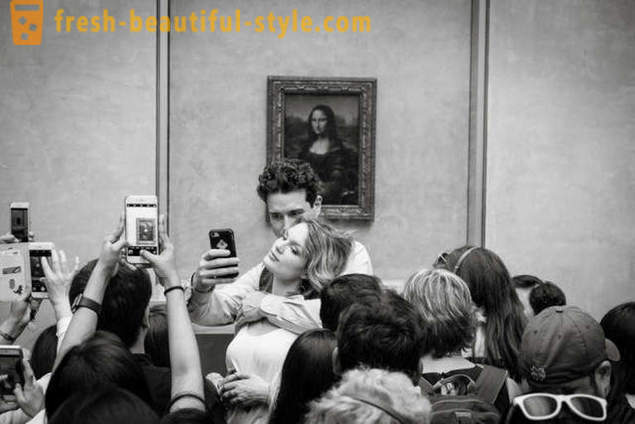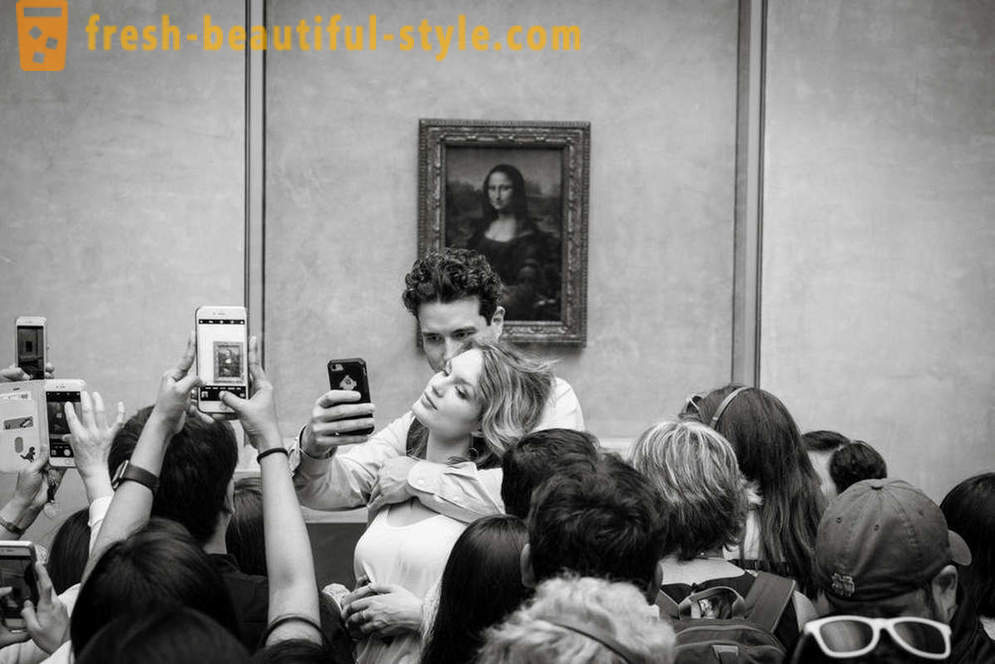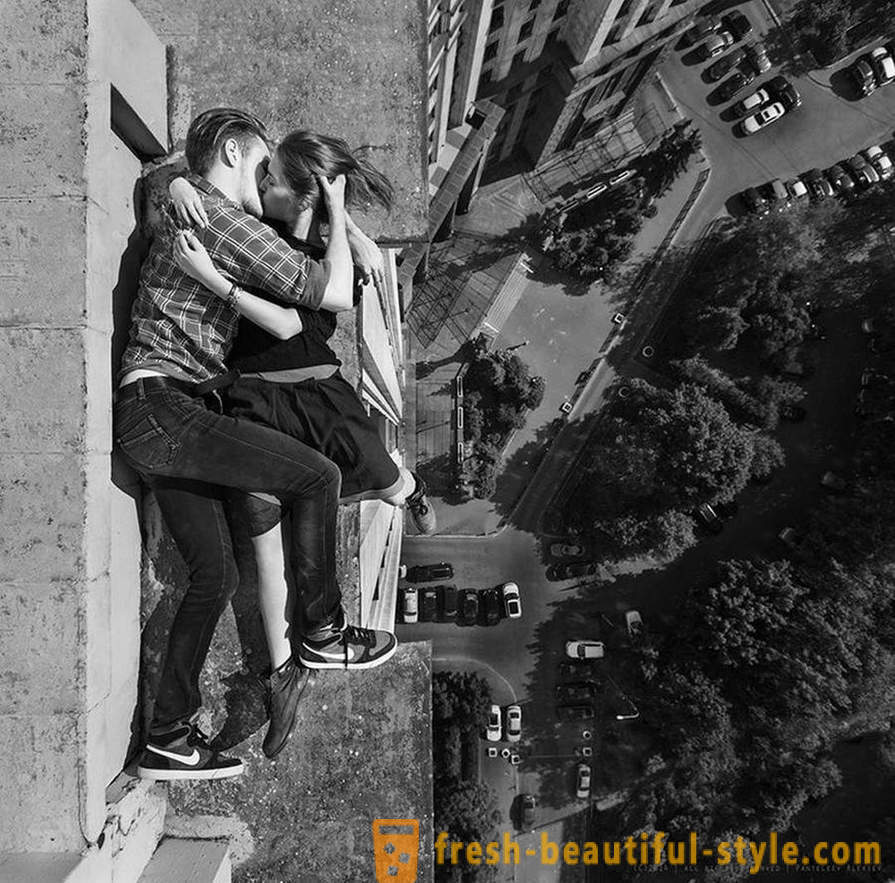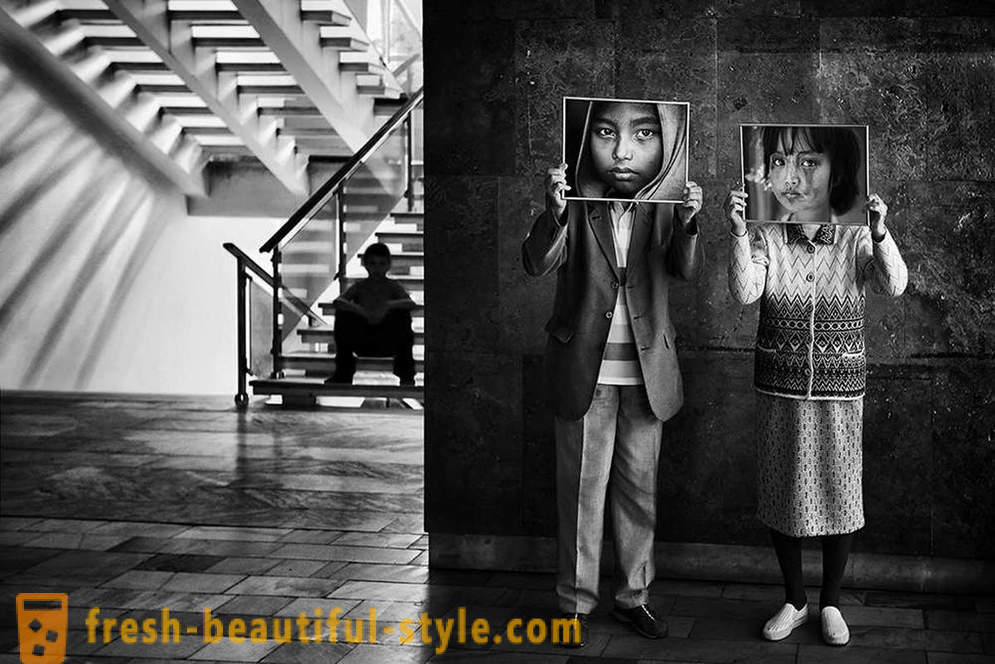Excessive "fotozud" affects memory and identity
• Excessive "fotozud" affects memory and identity
Each year the collective "photo archive", created by mankind, replenished almost a trillion digital photos. Every minute they occur more than in the whole of the nineteenth century. The great proportion of all this indiscriminate "fotomassy" continuously loaded in the social network and virtual storage belongs selfie: Instagram in, for example, this tag observed over 300 million pictures. And this obsession with shooting has side effects.

For many hundreds, or even thousands of frames per week - an integral part of not only a holiday, but also to everyday life. With the help of pictures people are trying to keep in the mind of this or that event, to catch the impression share with friends interesting scenes, the view from the hotel window of his apartment or car. Reasons for photography are countless. And they all seemed to be well founded.
Previously, everything was different. Film cameras worked for magazines with a limited number of shots, so it was necessary to consider carefully before you make a treasured click. Then it needed a complicated procedure processing film, print photos - in the home laboratory (which is seen by many as the real mystery) or a shop. And even at the disposal of the lucky owners of Polaroid camera that can see the photo almost immediately, there were only 8 or 10 shots.
On an even earlier stage of development of this art, everything was much more difficult, and photos appeared in family albums only in connection with significant events or important stages of life. Attitude to photography was more relaxed and natural. Looking back on his life and flipping through photo albums with people brings to mind images of the past. Something in the light of these memories seemed more clearly, something - as if through a haze, but something completely erased. Images of memory often "Highlight" other sources of information - books, stories of relatives and friends.

Photo by: Alexander Vereshchagin.
An obsession with taking pictures, peculiar to modern man, then there could be no question. Yes, someone is interested in photography more learning the theory and practice of the art, some less, paying tribute to photography only during the holidays or a Sunday stroll. Every picture, not even the most successful, stood a memorable event. Representations about the past evolved into a holistic and harmonious way, allowing a person to feel the connection to time.
But the passion of modern man to the constant shooting, excessive "fotozud" compelling look at the world as if through the lens window, and then spread more and more new pictures in the social network is not able to link together the past, present and future. According to experts, fotooderzhimost can lead to deterioration of memory and to cognitive distortions that hinder the mature self-determination and to overcome an identity crisis.

Picture Author: Kate Miller-Wilson.
The desire in whatever was to capture any nonsense in the photograph may "pull" such kvazireportera of life, its way on the other side of reality. photos of the excess leads to the fact that real life is buried under this pile of virtual fotospama. But the modern man accustomed to perceive the world only if it is diffracted by the camera lens, and after - edited in various graphic editors.
Obsession shooting "in memory" threatens transformation of the storage and destruction of the last image. This, by the way - one of the series "Black Mirror".
It is common knowledge that you need to train your memory regularly to the brain effectively. Permanent photographic images of events leads to the opposite effect: people forgotten how to remember almost completely entrusts this function to external devices. Excessive reliance on them, we question our own identity. In fact, modern humanity looks in a distorting mirror. We have a lot more trust in a virtual "cloud" storage than themselves. Today, for example, few people can recite poems. But we can easily refresh the memory of a recent dinner at a restaurant. To do this, you need only flip through a photo album in your own smartphone. Unhealthy permanent dedication photographing can be the cause of a result of attenuation of memory and mismatch with oneself. All this entails a significant psychological and emotional discomfort.

Picture Author: Kinga Drazek.
Unfortunately, research on this topic is still very scarce. One thing is certain: all the more information we trust digital "storage" and "map" of memory, using smartphones, iPhones, iPads, laptops and other gadgets.
This is nothing new - throughout history, people have used the external device for storing, storing and transmitting information. Papyri, manuscripts, chronicles, historical records, church books, maps, etc. All of this -.. The collective external memories that help entire nations to follow its historical path and determine the ethnic identity. A similar function, but at the level of the family or individual "stories" is performed diaries, letters, photo albums.
Going on vacation or on a vacation, modern travelers documenting every detail, rather than to look at the sea or sky, to wander through the streets of ancient cities or the open-air museums, admire the fountains and parks, to see the faces of the passers, chat with friends.
Visitors to museums and exhibitions, rather than to enjoy the direct contemplation of masterpieces, fenced off from their smartphone screens, depriving themselves of the miracle of initiation to the art. They manage to do so even where flash photography is prohibited, without thinking that bright light can harm paintings, frescoes and ancient rarities.

Photo by: Pierre Faure.
Many, but not limited photographing paintings, tend in that no matter what make selfie on the background of the great works of art or sights: they say, as a souvenir. By clicking on the photo or video button, and then placing the image in the social networks, many immediately erase them from his own memory. And why clog the mind unnecessary files? Facebook reminds.
Image of the past in the human mind, thus becoming more and more dim and fragmentary. Mosaic postmodern culture increasingly penetrates the consciousness of modern man, depriving him of the opportunity to see the world holistically and harmoniously.
But the obsession with photographing especially evident in the rapid spread selfie culture. Portray themselves has become not only fashionable, but also intemperate passion. Selfie immediate predecessor - a self-portrait. The first attempt in this genre of images was made in the 19th century by Robert Cornelius, use the opportunity to daguerreotypes.

Photo by: Robert Cornelius.
Selfie popularity is understandable. Enthusiasm for this kind of photography - a manifestation of the natural tendency of man to harmonize the world, to overcome his hostility, to make positive, cause positive emotions. This is - a kind of aestheticization of the world and their place in it. However selfie does not reflect our true "I". On the contrary, these pictures usually show the way in which people want to appear in the eyes of others.
The majority of pictures in the genre selfie lack of immediacy. These images are staged, unnatural posture in them, and the people of expression - are artificial. Selfies reflect narcissistic behavior and form complexes unnatural mimicry - overly stretched smile hollow look strange and gestures. All this speaks of the desire to look better (or, in some cases, worse) than you really are. Keyword - appear (not be). Supporters of the psychological theory of "looking-glass self" (mirror self-concept) believe that our self-esteem is based on how others see us. Today, many people simply have forgotten how to live without all sorts of "likes" that constantly feed their vitality and inspire more and more new "exploits". This is related to serious risks. As long as one is aware of them, he can, if not eliminate, at least to mitigate the harmful effects of such odrezhimosti.

Photo by: Angela Nicolaou.
However, it is possible not all. Many young people simply ignore these risks. Need to get your dose of adrenaline, surprise my friends in social networks, gathered a bumper crop of "likes", overpowering instinct of self-preservation. Selfie has become more extreme hobby, and for some special selfie-obsessed extreme turns into a real obsession, forcing to forget completely about the possible risks.
This leads to loss of contact with reality. The instinct of self-preservation is blocked. It is no accident selfie often refer to as "killfie" (kill - kill). The number of self-portraits made by the instant before death, is growing rapidly. Meanwhile, modern selfie marketing offers new applications that allow you to take pictures in the double exposure - not one, but two cameras.
But there is another, less obvious danger. Our identity - the product of personal experience of life, which can be easily accessed through our memories of the past. Images can make us remember the past, so to speak, in a fixed manner, thus blocking other memories.
Man needs a certain "image" itself, harmonizing it. In this - the meaning of "identity." Its loss can seriously affect the mental health of the individual. Presence in all sorts of gadgets permanent "photo reports" can make our store more than superficial, and personality - the more conservative and immobile.

Photo by: Alla Sokolova.
Our self-image is constantly changing, and people, respectively, does not coincide with the same. Personality goes through the stages of gradual maturation, and then aging. This is the natural course of things. Not always this experience consists only of pleasant experiences. Cope with conflicts in life helps us normal operation of the memory. It is able to form a balanced representation of the person about himself, about the past, about life in general.
Of course, one should not completely give up photography. It is important to stick to the golden mean between a simple fixation of events and the ability to create their images in their minds. To avoid the displacement of these skills, you need to rely primarily on their memory.
So when you're in a museum or go to sea, find an opportunity to capture these events in his head, not in the smartphone. Because photos are fade property. The probability that the images may be lost due to the failure of the elementary gadget, is always there. External storage and the "cloud" Google may vanish like smoke. That will remain in our internal memory?

Photo Author: Kate Miller-Wilson.













































